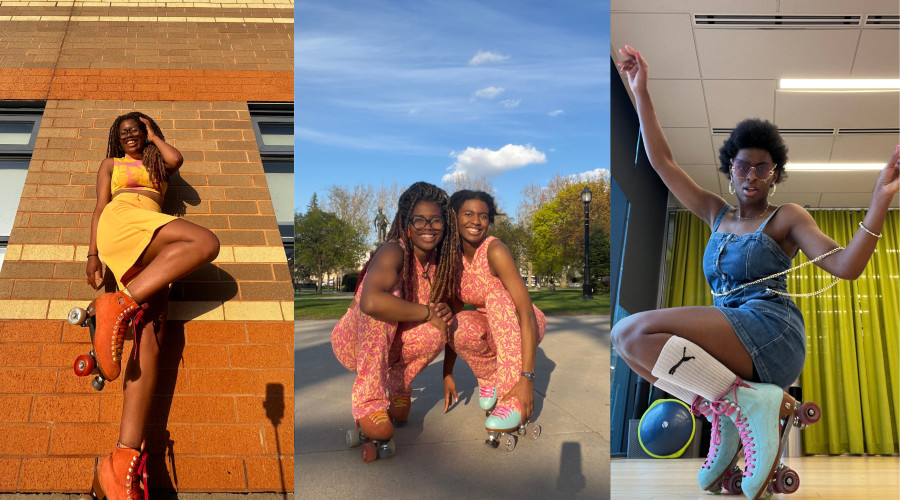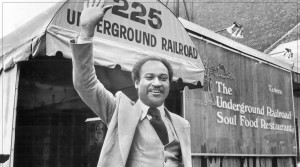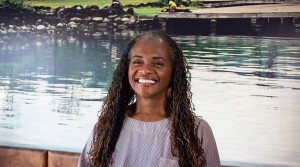Fast forward to the 1970s, and roller disco became widespread. However, it was within the Black and gay skating communities that this style of skating truly found its roots.
In Toronto, people had various options for roller skating venues, such as the renowned Victoria Rink on Huron Street and the Granite Club Roller Rink at 519 Church. Roller skating held a universal appeal, transcending age. Competing arenas vied for customers through newspaper ads, proudly proclaiming to cater exclusively to a discerning clientele. However, the history of discrimination against Black people in roller skating is hard to ignore.
One striking example is the story of Armistead Pride Taylor, who waged a civil claim for $50 in damages after his son and wife were denied entry to a roller rink due to their race.
The systemic exclusion of Black individuals from roller skating dates back to the very origins of roller rinks and roller disco, extending beyond the boundaries of Toronto. Segregation remained a pervasive reality for the Black community in skating cultures worldwide.
Even as roller skating enjoys a resurgence today, it’s essential to recognize that it’s not a mere comeback but rather a tradition that has always persevered, thanks to the steadfast dedication of the Black Skating Community.
As the TikTok resurgence of skating sweeps across the nation, two sisters from Toronto have decided to take the lead in celebrating the Black community's rich skating legacy. Inspired by the movement, Geneva and Sonnet Hines are set to host a Black History of Skating event on February 24th and 25th at the historic Roller Pony in Toronto, bringing together community members for a fun-filled weekend to highlight and honour this important tradition's legacy.
{https://www.tiktok.com/@hinesisterskate/video/7325891575618358533}
“People can sign up to do performances throughout the night. They can pick a song and perform for about 30 seconds to a minute and a half, which will allow people who are advancing their skate skills or even beginners to participate and engage. Even if people aren't comfortable going in the middle [of the skate circle], they can still watch.”
The event will have a photo booth, and everyone is encouraged to dress from different eras that embraced skate culture, like the 50s, 60s and 70s.
History will also be an integral part of their event. “We really want to focus on Black History through North American or skating culture. We will have trivia throughout the night that relates back to that. We have a big monitor that will feature a slideshow of different facts that people should know about skating in Canada and the US. Our focus is that people love skating, but not all people know the history and importance of Black people in creating different styles. The term ‘roller dance’ didn’t exist until a Black man named Richard invented it.”
Geneva also shared a story about the Grandfather of the Chicago style, who taught most steps to people in the Chicago area, which continue to be used today. She adds that there were sit-ins or skate-ins during the civil rights movement because of the segregated rinks.
“People don't know about the segregated rinks. There was even a time when they only wanted Black people to go once a night. They didn't want to give them the opportunity to just intermingle. They would call it soul night or adult night to cover it up.” Geneva adds that they want to share both the positives and the negatives of Black skate history at the event.
Geneva and her sister, Sonnet, stumbled upon roller skating when they were just 20 and 17 years old. “We both were on TikTok like everybody else, and we actually came across many people who were roller skating during their free time, and it piqued our interest. I got my skates online, which arrived on my birthday,” says Geneva.
Her sister Sonnet actually took her mom’s skates and never returned them.
They both started skating within a week of each other. Sonnet notes, “It really just blossomed into becoming exercise for us, but it's also like a lifestyle.” They have since founded the group Hines Sisters Skate.
Sonnet says they were often referred to as ‘pandemic skaters’ because they had only joined during this online resurgence, but despite the term, the sisters are glad to be a part of a bigger community.
“It's really interesting to see the intersections of the communities. There’s that Black community that you get at the roller rinks, and you get a whole different crowd around you. There's a lot of mentorship, which I appreciate so much because there are many older people than myself and Geneva who are wise about moves and lifestyle. It’s nice to have that kind of intel.”
Sonnet adds that the online roller skate community allows them to connect globally.
“You get people from different countries, provinces, and locations worldwide. It's interesting because there are many different roller skating styles. For example, there’s an Atlanta style of roller skating and an event we'll go to later this month that will cover that style. It's nice to see that connection building the global skate community online and seeing it through the people you meet at the rink.”
The Black Skate community is also expanding and spreading onto social media and meeting in the real world. Sonnet shares that the Hines Sister Skate duo connected with the Instagram account Melanin Skate Crew and had the privilege of meeting in person. The Hines Sisters have also visited Barcelona, skated with over 400 people, and enjoyed workshops, classes, and connections. They were astonished to see people skate for nine hours straight and then start again at 10 am.
{https://www.tiktok.com/@hinesisterskate/video/7322527723870539013}
Geneva and Sonnet founded Hines Sister Skate and started posting in 2022. Sonnet says, “We really want to focus on showing a practice leading to progress because social media can be a double-edged sword. Sometimes, people don't show the whole story how they get to a certain point or how they learn different moves. We wanted to be people in the community who have helped share the love of skating and show how we got to where we are and started from zero. We both did and continued to get better with time.”
Next, they started to host events, build community and meet new people.
{https://www.tiktok.com/@hinesisterskate/video/7323282825606696198}
“In early 2023, we did a mini get-together. We have our event coming up, and we really just want people to make new friends and make a community. I think it's hard to find those spaces nowadays where people can just kind of be. The phones and the technology aren't there, and when you're skating, you're just in the moment. We also have plans for the future, and I think we're really focusing on the events because we want to bring people in and engage the community. I think it's so important with the Black History Month event that we're throwing to just be around people, being around like minded individuals or meeting new people. We're really excited for the future.”
Sonnet says she hopes people feel impacted when they learn about and see the expansive Black skate community. She also hopes people step out of their comfort zone and meet new people. ”I really do feel like when you start skating, you can't stop, and there's people that go every week. It becomes part of their lifestyle. And I want that for people as well. Many people have said they aren’t too sure about skating.” Sonnet feels the perfect time to try is with a huge community to support, pass down wisdom and educate beginners.

 By
By 





